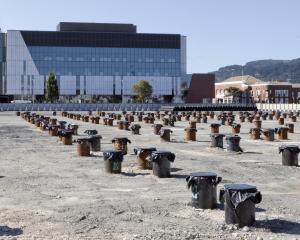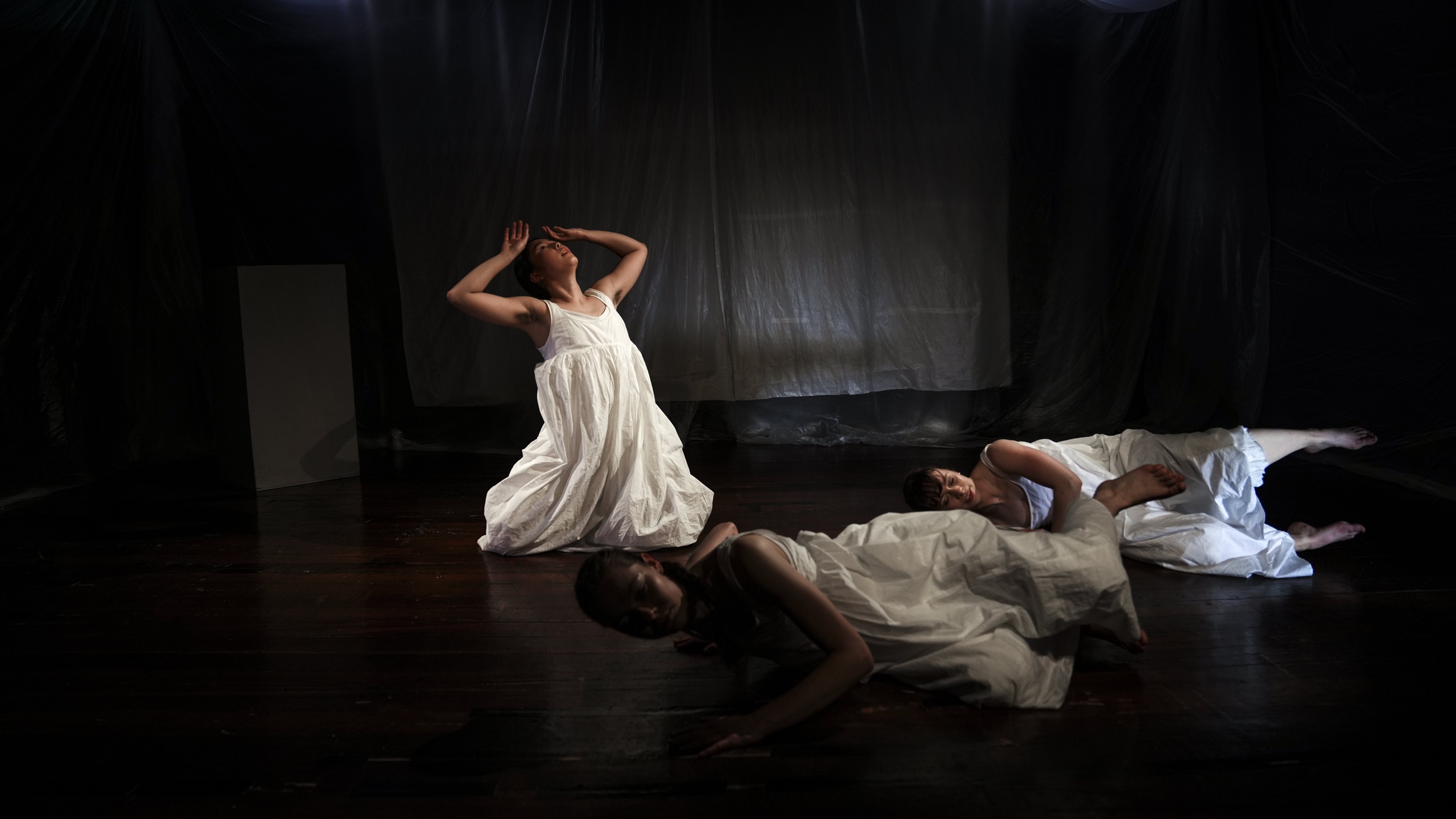
Having the opportunity to tour their first dance work and experience the challenges that go with being independent artists touring their own show is invaluable for Deborah Fletcher and Fiona Saunders.
Having met through family while doing dance studies at Auckland University, the pair teamed up after graduation when Fletcher decided she wanted to take a lockdown-inspired project she first made with two colleagues in 2020 as a dance film into full-length work.
"It was a response to some things that arose from experiencing lockdown and not being able to leave home. How we felt really limited in our thinking as our environments were limited. How that affected us, the imagined and real impositions of the mind, is how I described it."
It was shown at an experimental arts festival so the next year, still excited about the work, she began to develop it further with a few friends.
However, another lockdown shook her confidence and she lacked the creative drive to push it forward.
"So I put it off, but then last year I realised I was still inspired by the idea, although it was moving away from Covid references to it just being more about worldbuilding and exploring how we interact with space ...
That very metaphorical idea inspired me."
So she got in contact with Saunders, whom she knew through her sister was keen to move into production, and asked her to come on board as producer of the work.
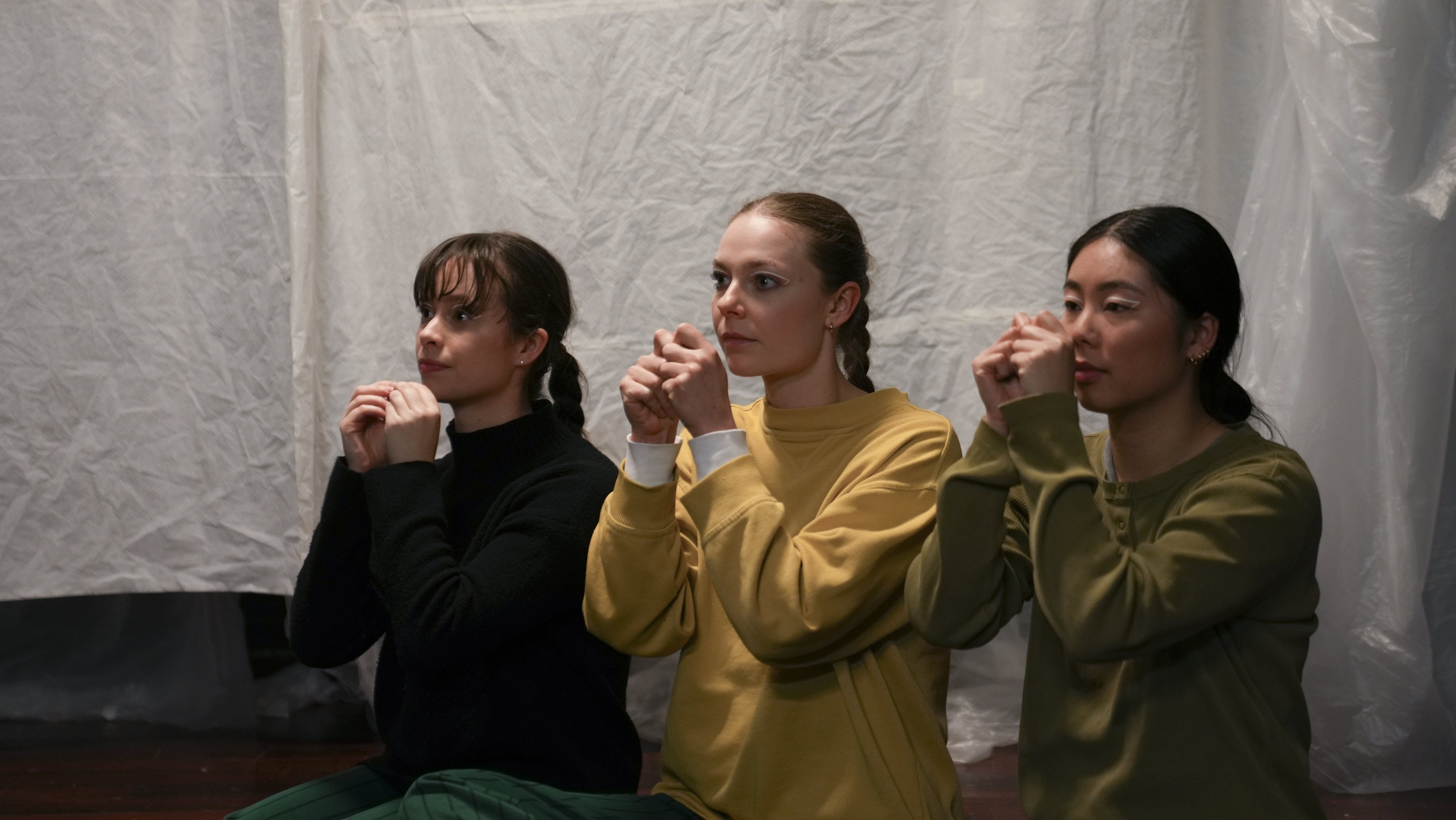
"I don’t have all the talent and I’ve already had three knee surgeries, so I knew that while I still have the dream of performing and choreographing I knew I wasn’t going to be jumping into a company and dancing full-time and I knew I didn’t want to be a dance teacher."
She then investigated what other avenues were available that would keep her involved in the industry.
"I ended up asking an old teacher who did some production work if I could do some shadowing."
It was a turning point for Saunders, who discovered she loved the role despite her earlier concerns that her dyslexia would hinder her.
"I like helping people create their work and there is a couple of sides of production that come naturally to me. If you are the type of person who feels like they need to know everything that is going on, it’s perfect. I’m not OK with trusting the process."
Fletcher then approached the dancers involved in the earlier work and two were still keen. So Emma Broad, Evie Logan and Lulu Qiu, all independent freelance dancers, came on board. Qiu also offered her services as a graphic designer, doing the poster and programme design and helping with costuming.
"They bring a lot of experience, styles and personalities and also are my friends. "
Fletcher likes to work in a collaborative way, allowing the dancers to have their input into the work.
"I don’t come to the dancers with set moves — it’s more malleable. They’re often coming up with the movement material and I’m helping mould it from an outside view. It works really nicely."
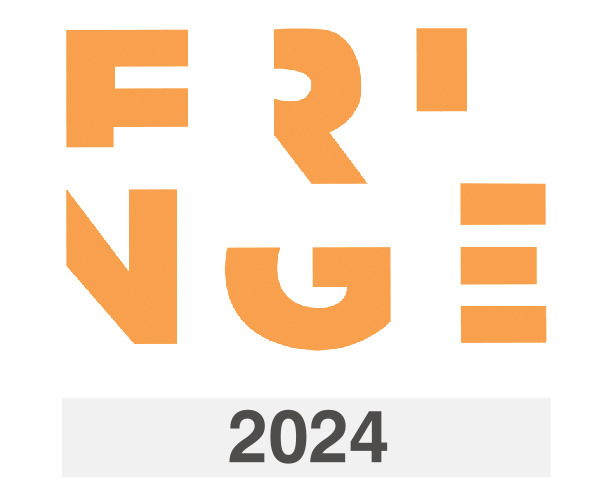
"There’s lot of open dialogue and we problem solve what might be possible."
After months of developing the full-length piece with funding support from the Peacocke Dance Trust, Basement Theatre and Creative Community Scheme, the pair staged the show at the Basement Theatre.
As it is quite an intimate space, Fletcher and the dancers worked together on what that would mean for the dance.
"It was really exciting. I’ve never presented a full-length work before. I’ve done short form works, so it was really cool.
"The Basement was such a supportive space. It’s a great place to present a work that was teething."
Saunders says the advice and information passed on at the Basement was invaluable and she still references it today.
"I’m a big fan of them."
It was also special as the pair are part of the Basement community and go to shows there quite often, so to be presenting their own work there meant a lot.
"It was really nice to share it with a community we felt familiar with amongst our peers."
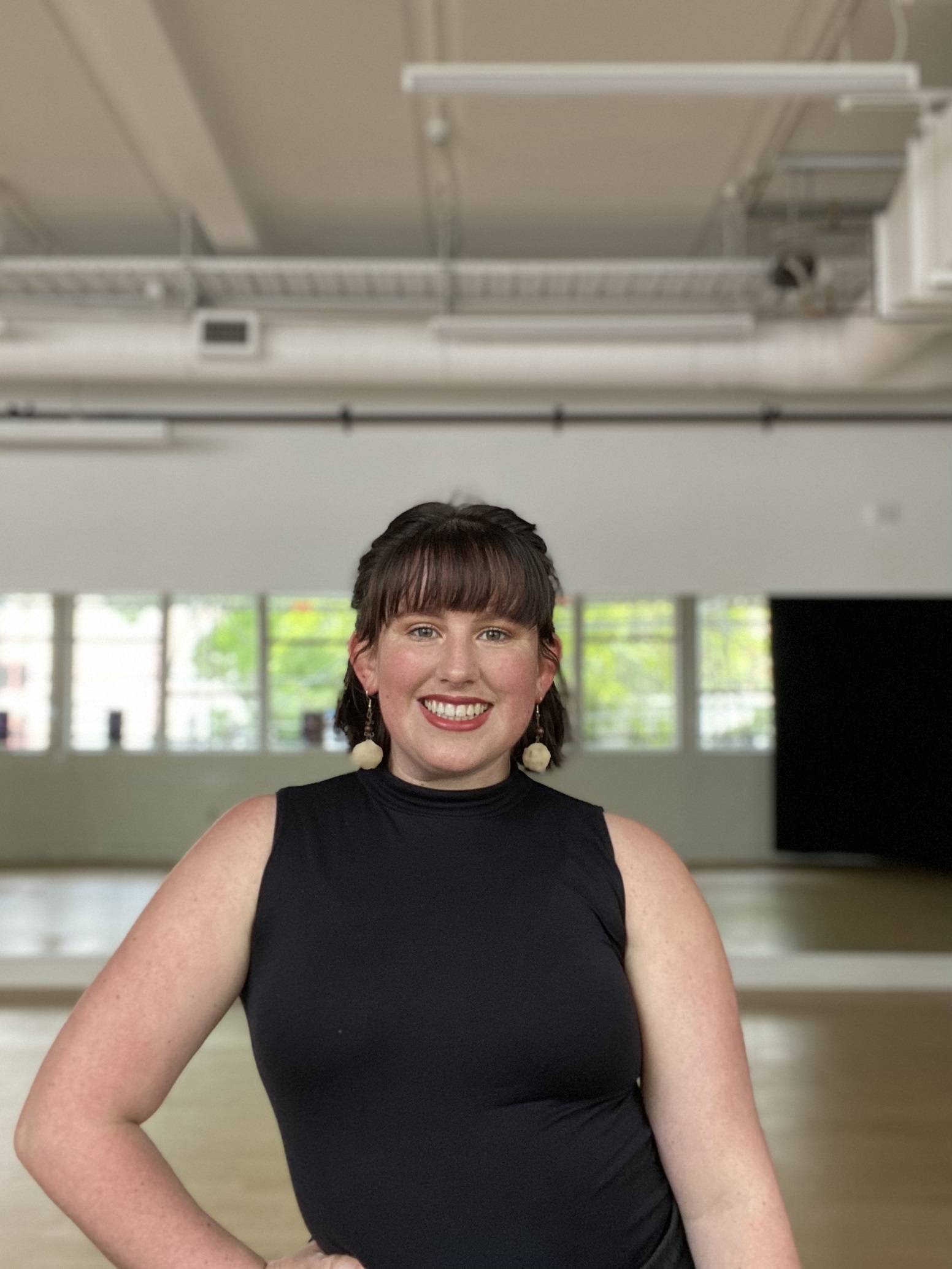
"It’s very exciting. For me I’m absolutely ecstatic about it. I want more people to see it. We’re all at the start of our careers, at least for myself it’s a first step into another city and creating more connection with the work," Saunders says.
"It’s the first step towards something big."
Fletcher is also excited as it gives them an opportunity to experience touring as independent artists.
"Touring and doing it all yourself for Fiona and I is a really good experience."
That has meant that, as well as taking care of the creative side, they have had to ensure the practicalities are sorted. So they are seeking more funding for the trip through a crowd funding Boosted campaign to cover the artists’ wages for the show and some extra costs in presenting it.
"Dunedin Fringe has been going for so long and Ōtepoti has a very vibrant arts community. Being able to take our work [to the city] means we can expand our national reach and connect with other artists, to go to other shows."
Despite the extra challenges, they have been enjoying the process.
On the creative side, the work itself is staying similar to the Basement production but with a "bit of new life and new energy".
"It’s been really nice remounting it."
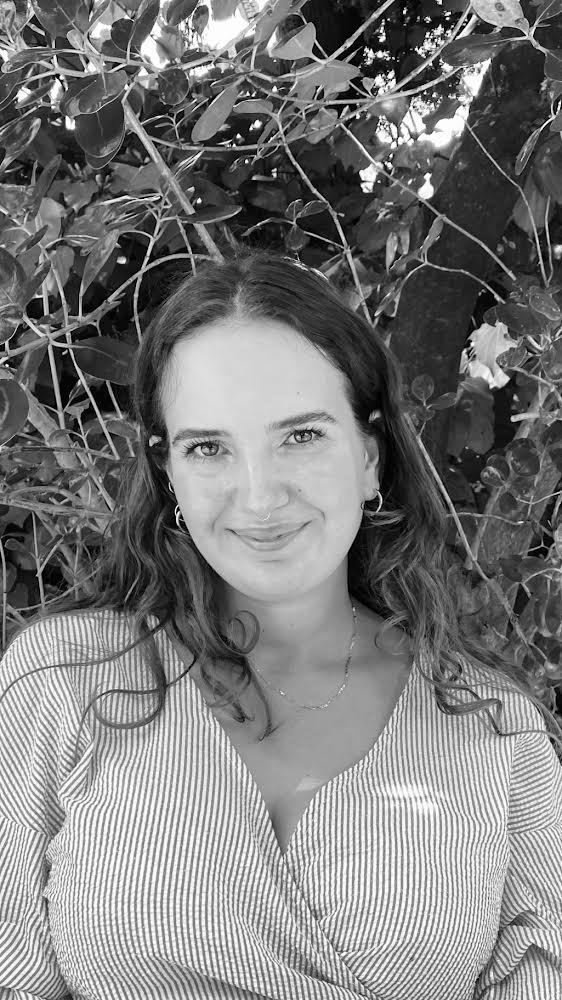
"I like to hone in on an idea and things came from there. I really, really enjoy."
She juggles choreography with her career as a dancer. Having grown up doing ballet and contemporary dance, she grabbed the chance to do dance studies at university.
Since graduating, she has been working with Tempo Dance Festival, Northern Dance Network and other dancers and artists.
"Producing, performing and choreographing here and there. Mostly contemporary, it’s what I learn towards."
All the experience she has gained has come together to help put on her first show, something she acknowledges is not easy as independent artists.
"It takes a lot of work to present something you are really proud of and the community comes out to see."
For the trip south they are having to redesign their set as the previous set will not work on the slightly bigger Athenaeum stage.
"We’re not completely altering the show but we’re definitely completely altering the set," Saunders says.
Fletcher says at the Basement, with some creative help from her sister, they surrounded the stage in large plastic sheeting to create a plastic room which the dancers moved in and through. The inspiration came from experiment rooms seen on television, in particular the Taskmaster plastic sheet room.
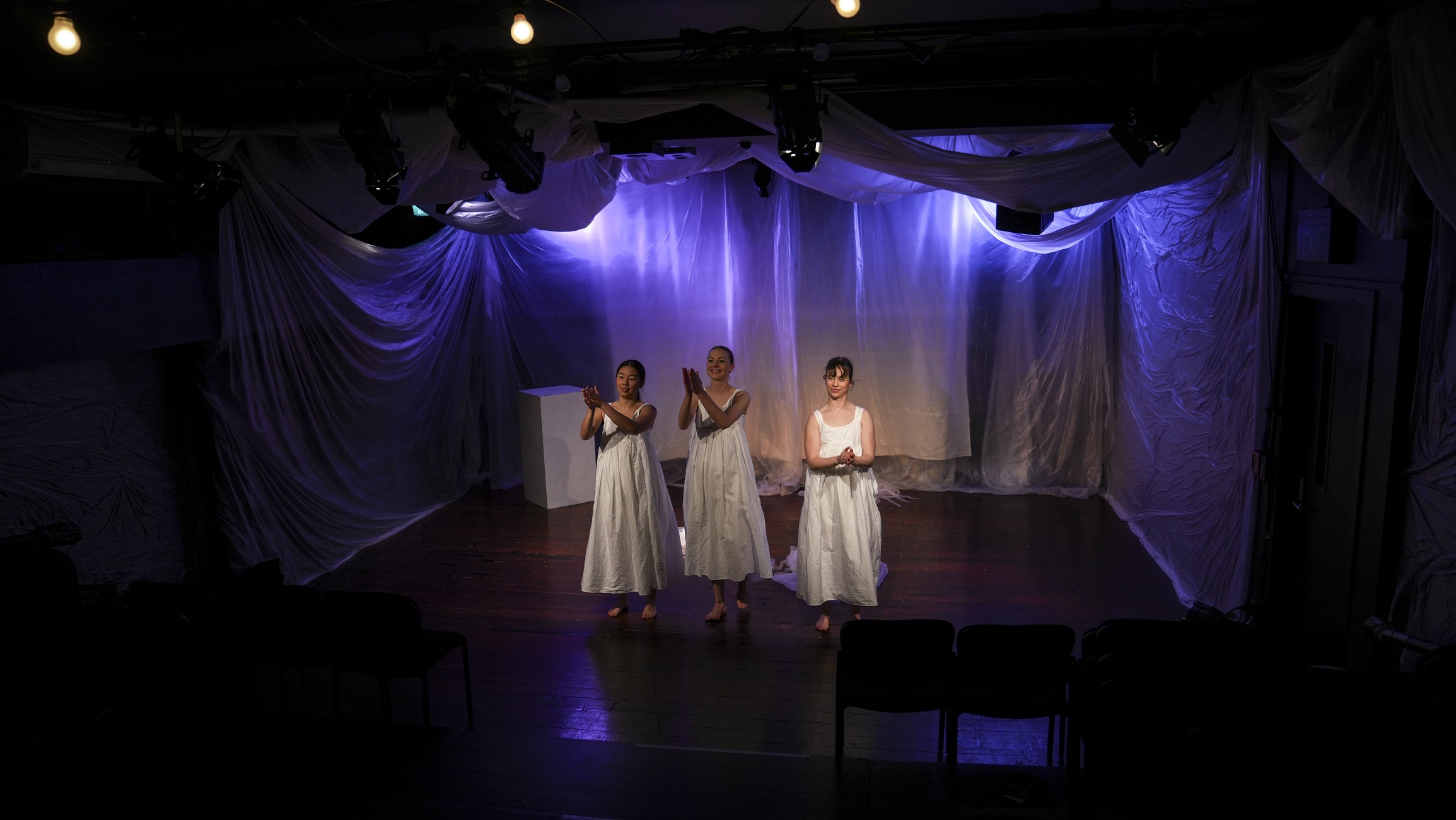
Saunders says it was almost as if the room started to breathe.
They are not going to be able to create the same effects in Dunedin but hope to do similar, Fletcher says.
"It’s not entirely environmentally friendly, but it’s something I was really interested in and liked the idea of and we did reuse the sheets and someone has used them in another arts project."
Saunders says while the Athenaeum and Basement are both black box theatres, as they are holding multiple shows at the Athenaeum they get only 20 minutes each side of the show to pack in and out, whereas at Basement they had two days.
"So we had quite an elaborate set that we had created in the space. So we are now rethinking it to see how we can get it up in 20 minutes and pull it down in 20 minutes."
The success of the Basement season and the funding assistance gained so far has given Fletcher a real boost in confidence in her own work, as well as Saunders and the dancers.
"I’m keen to see where that might take me."
To see:
Our Jurisdiction, New Athenaeum Theatre, March 17-18, 6pm.









